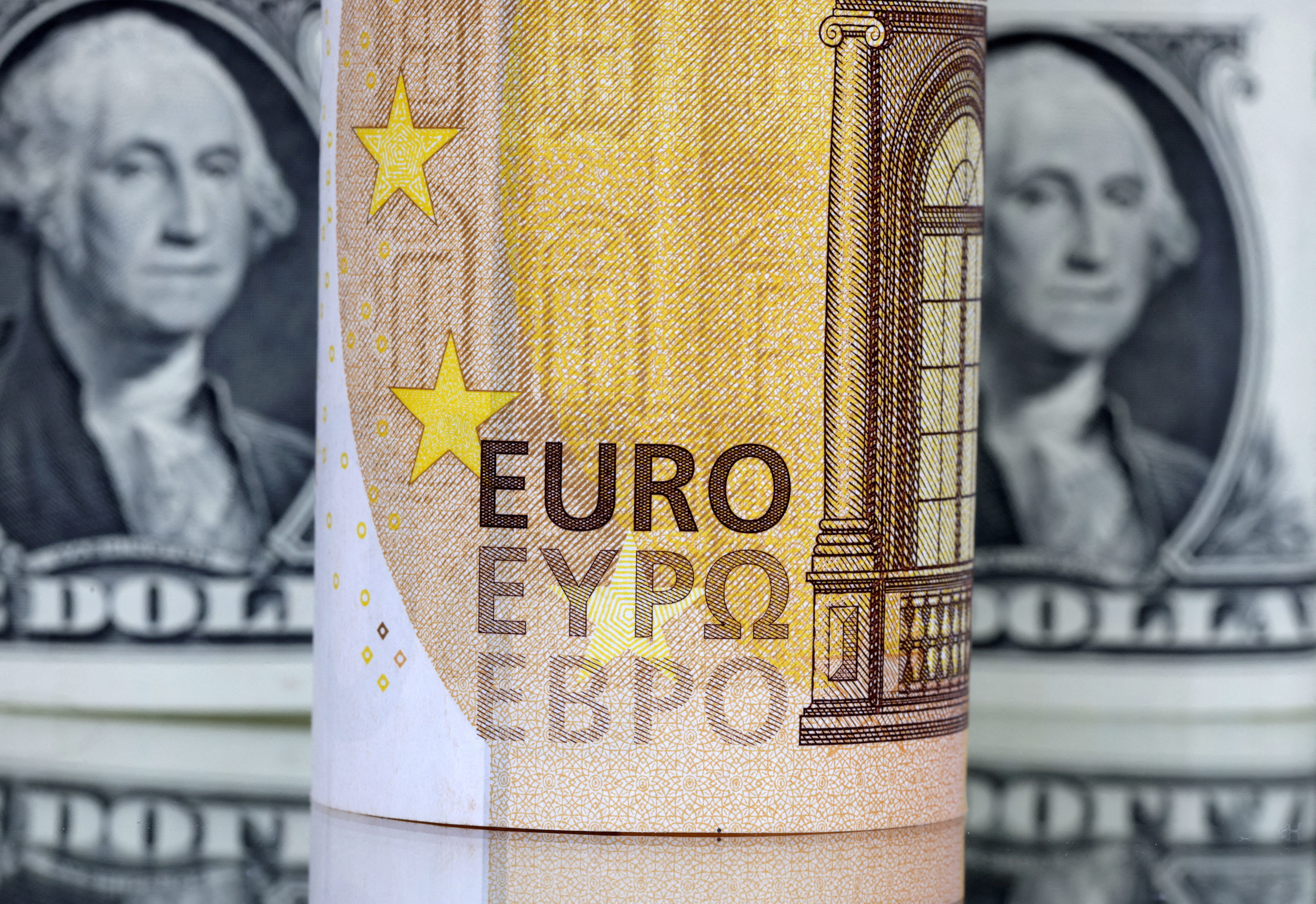The dollar hovered near a nine-month low to the euro and gave back recent gains against the yen on Tuesday, as traders weighed the risks of a U.S. recession and the path for Federal Reserve policy.
The U.S. dollar index - which measures the greenback against a basket of six peers, including the euro and yen - slipped 0.12% to 101.89, heading back towards the 7-1/2-month low of 101.51 reached last week.
The euro added 0.08% to $1.0880, taking it closer to Monday's peak of $1.0927, the strongest since April.
"The U.S. is no longer the cleanest shirt in the global economic laundry," said Ray Attrill, head of foreign-exchange strategy at National Australia Bank, who expects the dollar index to fall to 100 by end-March and the euro to rise to $1.10.
"That's integral to our bearish U.S. dollar view, that the U.S. is not going to be the global growth leader."
By contrast, Europe's single currency has been buoyed by comments from European Central Bank officials pointing to further aggressive policy tightening.
The latest was ECB President Christine Lagarde, who on Monday reiterated that the central bank will keep raising interest rates quickly to slow inflation, which remains far too high.
"President Lagarde has been among the hawks, and so we are comfortable with our call for 50bp increases at the next two meetings," Commonwealth Bank of Australia strategist Joseph Capurso wrote in a client note, pointing to the potential for a test of $1.1033 for the euro this week.
Elsewhere, the dollar sank 0.41% to 130.11 yen , retreating after two sessions of strong gains.
Last week, the dollar fell as low as 127.215 yen, its weakest since May, before a Bank of Japan policy review as investors bet the BOJ would begin to end its stimulus programme. The BOJ, however, left policy unchanged, giving the dollar some respite.
Many, though, continue to expect a hawkish shift by the BOJ this year, as policymakers continue to tweak policy in order to extend the life of the yield curve control (YCC) mechanism, which pins short-term rates at -0.1% and keeps 10-year yields in a band around zero.
"Clearly, the market regards the YCC policy as well past its use-by date, and it's only a matter of time - and probably months rather than quarters - until the BOJ sounds the death knell on it," said NAB's Attrill, who predicts dollar-yen will decline to 125 by end-March.











